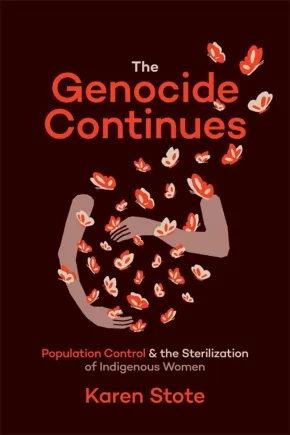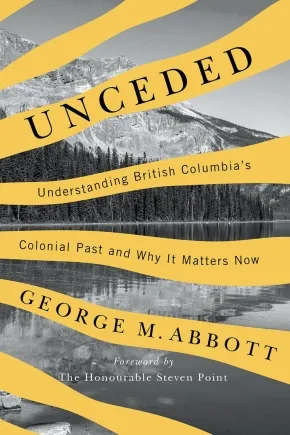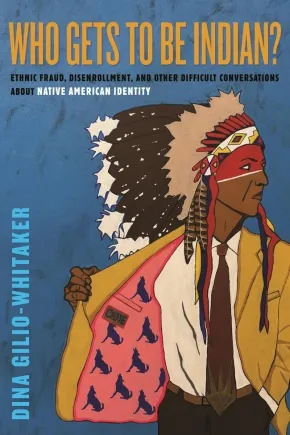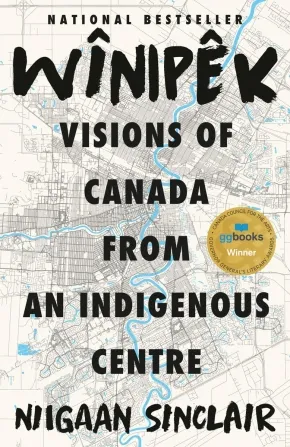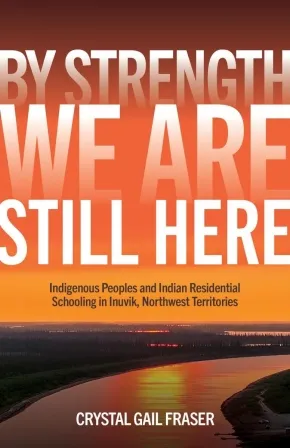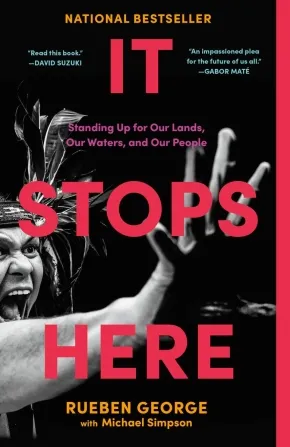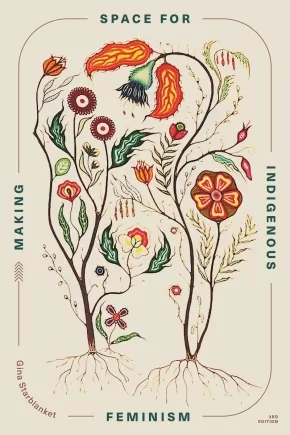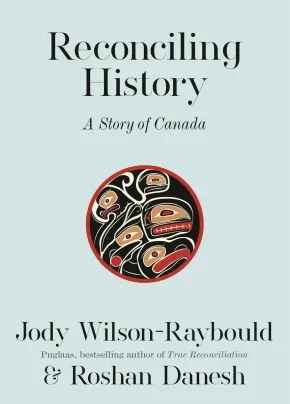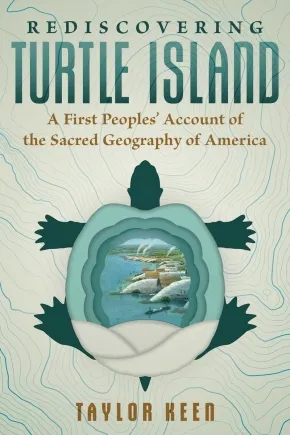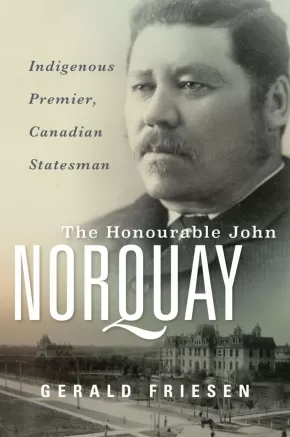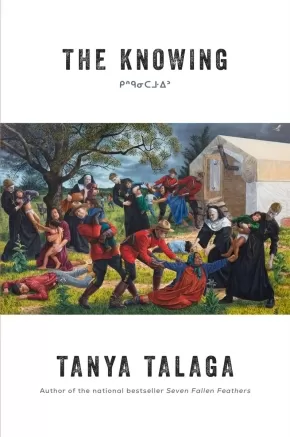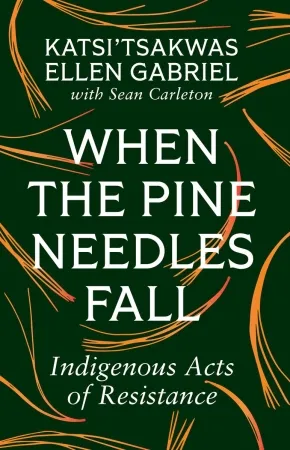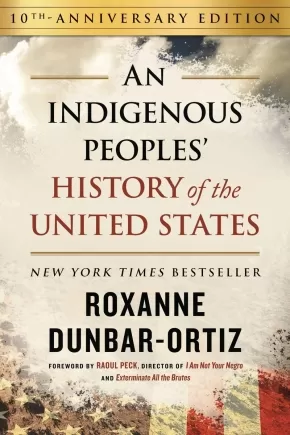Indigenous Awareness
Synopsis:
Indigenous Peoples in Canada have experienced coerced sterilization under eugenics legislation since the 1930s, and the violence has never stopped, even though eugenics fell into disrepute. In The Genocide Continues, Karen Stote traces the historical, political, economic and policy context informing the coerced sterilization of Indigenous women from 1970 onward. She shows how a powerful idea paved the way for the expanded violations of Indigenous People’s bodies and futures. That idea was population control — a concern with who occupied land and how resources were distributed — and it was a central thread guiding public health interventions from eugenics to family planning.
The Genocide Continues offers new insights to show how federal, provincial and corporate activities intersected to criminalize and regulate Indigenous reproduction. Saskatchewan, which first established family planning policies in the 1970s and is now the province with the highest number of Indigenous women coming forward with experiences of coerced sterilization, is Stote’s case study to demonstrate why family planning activities consistently targeted Indigenous women.
Stote weaves compelling archival evidence with principled storytelling to connect violence against Indigenous bodies to violence against Indigenous lands. Unless and until colonialism, extractivism and dispossession are addressed, a genocide against Indigenous peoples will continue.
Reviews
"Karen Stote has skillfully woven archival documents with evidence in policy, philanthropy, and medicine to show the repulsive side of Canada’s health care system as an assimilation tool. This book recounts the reasons why forced and coercive sterilization of Indigenous Peoples happened and is still happening." - Karen Lawford, Queen's University
Additional Information
288 pages | 6" x 9" | Paperback
Synopsis:
In British Columbia, land acknowledgements often refer to “unceded territory.” Yet many people remain uncertain about the history behind these words or their implications for the future of the province.
Unceded reveals the BC government’s history of injustice toward First Nations, providing the context for understanding the province’s current reconciliation efforts, including modern treaty negotiations. Treaty commissioner George M. Abbott combines archival research with a former cabinet minister’s insider perspective on government to chronicle over 150 years of BC-Indigenous relations. Abbott’s account details how early government officials refused to negotiate treaties and instead coerced First Nations onto small and scattered reserves while granting settlers access to vast tracts of land. Despite sustained Indigenous resistance, the situation only worsened as non-Indigenous demands for land and natural resources increased in the decades that followed.
It was only after several Supreme Court decisions affirmed Indigenous land rights that BC sat down at the negotiating table. More recently, the province has taken notable steps toward reconciliation, concluding modern treaties and passing legislation that acknowledges Indigenous rights. As Abbott shows, overcoming the legacy of colonialism is no small task, but achieving justice is worth the effort it takes.
This book is for readers of BC history, those who follow provincial politics, or anyone invested in the future of British Columbia. It is essential reading for elected officials and policy makers and will also appeal to scholars and students of Canadian history, political science, and Indigenous-settler relations.
Reviews
"Unceded is an excellent account of the relationship between First Nation groups and the government of British Columbia. It is well-researched and enriched by interesting insights from George Abbott’s own involvement in more recent developments as a member of the provincial cabinet."— Jim Reynolds, author of Canada and Colonialism and former general counsel to the Musqueam First Nation
"I wish to thank George Abbott for his book about our colonial past. It is only with a better understanding of our history that we can have a better chance of creating a brighter future for First Nations in British Columbia."— From the foreword by the Honourable Steven Point, Grand Chief of the Stó:lō and BC’s first Indigenous Lieutenant-Governor
Additional Information
280 pages | 6.00" x 9.00" | Paperback
Synopsis:
An investigation into how Native American identity became a commodity, from cultural appropriation to ethnic fraud to disenrollment
Settler capitalism has been so effective that the very identities of Indigenous people have been usurped, misconstrued, and weaponized. In Who Gets to Be Indian?, scholar and writer Dina Gilio-Whitaker (Colville Confederated Tribes) explores how ethnic fraud and the commodification of Indianness has resulted in mass confusion about what it means to be Indigenous in the United States.
As an entry point to the seemingly intractable problem of ethnic fraud, Gilio-Whitaker critically looks to the film industry, including a case study of Sacheen Littlefeather, who is most known as the Native American woman that rejected an Oscar on behalf of Marlon Brando in 1973—though later revealed, she was not who she said she was. Gilio-Whitaker argues that this pretendian phenomenon originated in Southern California when the United States was forcing assimilation of Indians into white America culturally, but also into its capitalist economic system. With Indianness becoming a marketized commodity in the Hollywood film business, the field became open to anyone who could convincingly adopt an Indian persona.
Deeply researched using socio-historical analysis, Gilio-Whitaker offers insights from her own experiences grappling with identity to provide clarity and help readers understand how the commodification of Indianness have ultimately left many people of legitimate American Indian heritage to be disconnected from their tribes. Personal and compelling, Gilio-Whitaker takes settler capitalism to task and helps us better understand how we got here in order to counteract the abuses of pretendianism and disenrollment.
Reviews
“This incendiary j’accuse isn’t afraid to name names.”—Publishers Weekly, Starred Review
“With clarity and conviction, Dina Gilio-Whitaker exposes what’s at stake for Native people when Indianness becomes a commodity. A sharp, personal, and urgent look at the high cost for actual Native people in a system built to exploit them at every turn.”—Kim TallBear, author of Native American DNA: Tribal Belonging and the False Promise of Genetic Science
“Indigeneity is caught between truth tellers and tricksters. With abiding concern for tribal nationhood, Dina Gilio-Whitaker boldly espouses our truths while confronting the tricksters among us. Indigenous America needs more truth tellers like her and books like this.”—Gabe Galanda, Indigenous rights attorney
“Dina Gilio-Whitaker’s Who Gets to Be Indian? tackles the problem of the commodification of Native identity at a crucial moment in American history. With incisive analysis, Gilio-Whitaker reveals how settler capitalism has distorted and exploited Indigenous identities and exposes the roots of folks pretending to be Native and its harms to Native communities. This book is a call to action and a vital tool for understanding how we can protect Indigenous people. A must-read for anyone seeking to confront the complexities of Native identity, sovereignty, and power in America.”—Liza Black, author of Picturing Indians: Native Americans in Film, 1941–1960
“A fresh and unflinching look into the rise of pretendianism—when it became normalized for Hollywood to grant Native American identities to various grifters. Dina Gilio-Whitaker’s courageous and original analysis will challenge readers, Indigenous or not, to think deeply about the nature of settler colonialism today.”—Darryl Leroux, author of Distorted Descent: White Claims to Indigenous Identity
Additional Information
280 pages | 6.22" x 9.30" | Hardcover
Synopsis:
From ground zero of this country's most important project: reconciliation
Niigaan Sinclair has been called provocative, revolutionary, and one of this country's most influential thinkers on the issues impacting Indigenous cultures, communities, and reconciliation in Canada. In his debut collection of stories, observations, and thoughts about Winnipeg, the place he calls "ground zero" of Canada's future, read about the complex history and contributions of this place alongside the radical solutions to injustice and violence found here, presenting solutions for a country that has forgotten principles of treaty and inclusivity. It is here, in the place where Canada began—where the land, water, people, and animals meet— that a path "from the centre" is happening for all to see.
At a crucial and fragile moment in Canada's long history with Indigenous peoples, one of our most essential writers begins at the centre, capturing a web spanning centuries of community, art, and resistance.
Based on years' worth of columns, Niigaan Sinclair delivers a defining essay collection on the resilience of Indigenous peoples. Here, we meet the creators, leaders, and everyday people preserving the beauty of their heritage one day at a time. But we also meet the ugliest side of colonialism, the Indian Act, and the communities who suffer most from its atrocities.
Sinclair uses the story of Winnipeg to illuminate the reality of Indigenous life all over what is called Canada. This is a book that demands change and celebrates those fighting for it, that reminds us of what must be reconciled and holds accountable those who must do the work. It's a book that reminds us of the power that comes from loving a place, even as that place is violently taken away from you, and the magic of fighting your way back to it.
Awards
- Winner of the 2024 Governor General's Literary Award for Nonfiction.
Additional Information
384 pages | 5.14" x 7.92" | b&w photos throughout | Paperback
Synopsis:
The first comprehensive study of Indian residential schools in the North.
In this ground-breaking book, Crystal Gail Fraser draws on Dinjii Zhuh (Gwich'in) concepts of individual and collective strength to illuminate student experiences in northern residential schools, revealing the many ways Indigenous communities resisted the institutionalization of their children.
After 1945, federal bureaucrats and politicians increasingly sought to assimilate Indigenous northerners--who had remained comparatively outside of their control--into broader Canadian society through policies that were designed to destroy Indigenous ways of life. Foremost among these was an aggressive new schooling policy that mandated the construction of Grollier and Stringer Halls: massive residential schools that opened in Inuvik in 1959, eleven years after a special joint committee of the House of Commons and the Senate recommended that all residential schools in Canada be closed.
By Strength, We Are Still Here shares the lived experiences of Indigenous northerners from 1959 until 1982, when the territorial government published a comprehensive plan for educational reform. Led by Survivor testimony, Fraser shows the roles both students and their families played in disrupting state agendas, including questioning and changing the system to protect their cultures and communities.
Centring the expertise of Knowledge Keepers, By Strength, We Are Still Here makes a crucial contribution to Indigenous research methodologies and to understandings of Canadian and Indigenous histories during the second half of the twentieth century.
Reviews
"By Strength, We Are Still Here demonstrates an intergenerational process of love and strength. Fraser's methodology, theory work, and incredibly thorough research are in and of themselves lifegiving, vital, and serve as an example to all other scholars." — Omeasoo Wahpasiw
"By integrating survivor testimony with archives, Fraser points towards the Indigenous resistance revealed in the ellipses and gaps in the colonial record. This is very important work." — Chris Trott
Educator Information
Table of Contents
Glossary
A Note on Region and Terminology
Introduction—By Strength, We Are Still Here.
Chapter One—“If anyone is going to jail for this, I’m taking it”: Our Relatives Speak
- Education in Nanhkak Thak Before the Arrival of Settlers
- Indian Day and Residential Schools
- The Construction of Inuvik
Chapter Two—Calls Grow. “Listen! It’s louder now. From here, from there. Indian voices, Métis voices, demanding attention, demanding equality!"
Chapter Three—“The long process of tearing our family apart”
Chapter Four—“Making us into nice white kids.”
Chapter Five—“The hazards that can result from too permissive or undisciplined sexual behaviour.”
Chapter Six—“To find that inner peace, it was so important for us all.”
Chapter Seven—“These are our children and they are very precious to us.”
Conclusion—“We knew the value of strength.”
Appendix A
Endnotes
Additional Information
320 pages | 6.00" x 9.00" | 69 b&w illustrations, index, bibliography | Paperback
Synopsis:
A personal account of one man’s confrontation with colonization that illuminates the philosophy and values of a First Nation on the front lines of the fight against an extractive industry, colonial government, and threats to the life-giving Salish Sea.
It Stops Here is the profound story of the spiritual, cultural, and political resurgence of a nation taking action to reclaim their lands, waters, law, and food systems in the face of colonization. In deeply moving testimony, it recounts the intergenerational struggle of the Tsleil-Waututh Nation to overcome colonial harms and the powerful stance they have taken alongside allies and other Indigenous nations across Turtle Island against the development of the Trans Mountain Pipeline—a fossil fuel megaproject on their unceded territories.
In a firsthand account of the resurgence told by Rueben George, one of the most prominent leaders of the widespread opposition to the Trans Mountain Pipeline expansion, It Stops Here reveals extraordinary insights and revelations from someone who has devoted more than a decade of his life to fighting the project. Rueben shares stories about his family’s deep ancestral connections to their unceded lands and waters, which are today more commonly known as Vancouver, British Columbia and the Burrard Inlet. He discloses how, following the systematic cultural genocide enacted by the colonial state, key leaders of his community, such as his grandfather, Chief Dan George, always taught the younger generations to be proud of who they were and to remember the importance of their connection to the inlet.
Part memoir, part call to action, It Stops Here is a compelling appeal to prioritize the sacred over oil and extractive industries, while insisting that settler society honour Indigenous law and jurisdiction over unceded territories rather than exploiting lands and reducing them to their natural resources.
Additional Information
288 pages | 5.13" x 7.98" | 31 b+w images throughout | Paperback
Synopsis:
The third edition of this iconic collection features Indigenous feminist voices from across generations and locations, including many exciting new contributors.
The third edition of the iconic collection Making Space for Indigenous Feminism features feminist, queer and two-spirit voices from across generations and locations.
Feminism has much to offer Indigenous women, and all Indigenous Peoples, in their struggles against oppression. Indigenous feminists in the first edition fought for feminism to be considered a valid and essential intellectual and activist position. The second edition animated Indigenous feminisms through real-world applications. This third edition, curated by award-wining scholar Gina Starblanket, reflects and celebrates Indigenous feminism’s intergenerational longevity through the changing landscape of anti-colonial struggle and theory. Diverse contributors examine Indigenous feminism’s ongoing relevance to contemporary contexts and debates, including queer and two-spirit approaches to decolonization, gendered and sexualized violence, storytelling and narrative, digital and land-based presence, Black and Indigenous relationalities and more. This book bridges generations of powerful Indigenous feminist thinking to demonstrate the movement’s cruciality for today.
Reviews
“This collection is all feast, no fluff. It covers foundational elements of Indigenous feminism with depth and breadth and engages issues of national and international importance with considerable insight. Due to its readability and smart use of theory, this book is eminently teachable. I haven't highlighted this much in a long time.”— Margaret Robinson, Canada Research Chair in Reconciliation, Gender, and Identity
“This volume offers a view of the development and expansion of Indigenous feminisms as theory and praxis, reaffirming the validity of our respective Indigenous epistemologies to guide us into the future.”— Jennifer Nez Denetdale (Diné), University of New Mexico
“Multiplying are the calls for transformative healing issued by Indigenous feminism which is, at its core, about Indigenous sovereignty, solidarity, and liberatory justice for all. The diverse and incisive essays in Making Space for Indigenous Feminism (3rd ed) expose ongoing cis-heteropatriarchal settler colonialism, anti-Indigenous racism, and the erasure of gender and sexual diversity (including by Indigenous people ourselves), and their impacts upon minds, bodies, lived experiences, and relationships. Resistance and hope abound in the re-centring of (queer) Indigenous feminist futurisms: world-building that honours the self-determination of Indigenous women, girls, Two-Spirit, and trans folks, and promotes wellbeing for all of Creation.”— Chantal Fiola, author and associate professor, University of Manitoba
“This third edition continues to fulfill the promise of the title to make space for feminist interventions in Canadian Indigenous studies. Each author is committed to relational ethics and transformative praxis in addressing the most pressing issues that create epistemic and material injustices. From the heart rendering an intimate state-of-the-field assessment from pillars in the field, the politics of gender, policy, and violence manifested in Canada currently, to its latter chapters that open up new spaces by continuing to press for just Indigenous futures, of which decentering binaries of gender and sexuality is necessary, we see the importance of Indigenous feminist theorizing and praxis. Confronting gendered violence, heterosexism, disciplinary regimes, and colonialism with honesty and truth telling, Making Space generously offers us new paths to materialize a decolonial world.”— Mishuana Goeman, author of Mark My Words and Settler Aesthetics: Visualizing the Spectacle of Originary Moments in The New World
“Making Space for Indigenous Feminism provides us with powerful voices emerging from and incorporating past, present, and future. Each chapter continues to make space for the power of Indigenous feminisms, as women, femme, Queer, LGBTQS+ and Mad think together in a powerful analysis of our now. This latest edition of a classic, newly edited by Gina Starblanket, includes Elders and youth and brings us back to why Indigenous feminisms are the embodied, lived and felt knowledges that will inform our struggles going forward.”— Dian Million, University of Washington, American IndianStudies
Educator Information
Table of Contents
Extending Our Accounts of Indigenous Feminism—Joyce Green and Gina Starblanket
Section I: Home | Identity | Legacies
- Always Coming Home: Indigenous Identity, Indigenous Feminism, Scholarship and Life—Joyce Green
- Why Am I a Feminist?—Emma LaRocque
- Settler Colonialism in Canada: Making “Indian” Women Disappear—Mary Eberts, Shelagh Day, Sharon McIvor
Section II: Institutions | Representation | Resistance
- Red Ticket Women: Revisiting the Political Contributions of the Indian Rights for Indian Women’s Movement—Gina Starblanket
- Perpetual State of Violence: An Indigenous Feminist Anti-Oppression Inquiry into Missing and Murdered Indigenous Women and Girls—Robyn Bourgeois
- Gender Reveals that Matter: Cis-Heteropatriarchy, Settler Colonialism, and Child Welfare—Megan Scribe
Section III: Land | Relationality | Love
- Towards an Anti-Colonial Feminist Care Ethic—Eva Jewell
- Our Movements Need some Love as Well: Indigenous Land Defense and Relationality—Isabel Altamirano-Jimenez
- Mana Wahine and Mothering at the Loʻi: A Two-Spirit/Queer Analysis—Hōkūlani K. Aikau
Section IV: Decoloniality | Movement | Futurities
- Decolonization is a Queer Desire: Poetics, Politics, Negativity—Billy-Ray Belcourt
- Mad Indigenous Womanhood and the Psycho-Politics of Settler Colonialism—Cara Peacock
- On Black and Indigenous Relationality: A Conversation—Gina Starblanket, Robyn Maynard, Leanne Betasamosake Simpson
- Decolonization is Also Metaphorical: Indigenous Feminist and Queer-Two-Spirit Storywork Matters—Kelly Aguirre
Additional Information
320 pages | 6.00" x 9.00" | Paperback
Synopsis:
From the #1 national bestselling author of 'Indian' in the Cabinet and True Reconciliation, a truly unique history of our land—powerful, devastating, remarkable—as told through the voices of both Indigenous and non-Indigenous peoples.
The totem pole forms the foundation for this unique and important oral history of Canada. Its goal is both toweringly ambitious and beautifully direct: To tell the story of this country in a way that prompts readers to look from different angles, to see its dimensions, its curves, and its cuts. To see that history has an arc, just as the totem pole rises, but to realize that it is also in the details along the way that important meanings are to be found. To recognize that the story of the past is always there to be retold and recast, and must be conveyed to generations to come. That in the act of re-telling, meaning is found, and strength is built.
When it comes to telling the history of Canada, and in particular the history of the relationship between Indigenous and non-Indigenous peoples, we need to accept that the way in which our history has traditionally been told has not been a common or shared enterprise. In many ways, it has been an exclusive and siloed one. Among the countless peoples and groups that make up this vast country, the voices and experiences of a few have too often dominated those of many others.
Reconciling History shares voices that have seldom been heard, and in this ground-breaking book they are telling and re-telling history from their perspectives. Born out of the oral history in True Reconciliation, and complemented throughout with stunning photography and art, Reconciling History takes this approach to telling our collective story to an entirely different level.
Additional Information
304 pages | 6.25" x 8.75" | Hardcover
Synopsis:
An exploration of Indigenous cosmology and history in North America
• Examines the complexities of Indigenous legends and creation myths and reveals common oral traditions across much of North America
• Explores the history of Cahokia, the Mississippian Mound Builder Empire of 1050-1300 CE, told through the voice of Honga, a Native leader of the time
• Presents an Indigenous revisionist history regarding Thomas Jefferson, expansionist doctrine, and Manifest Destiny
While Western accounts of North American history traditionally start with European colonization, Indigenous histories of North America—or Turtle Island—stretch back millennia. Drawing on comparative analysis, firsthand Indigenous accounts, extensive historical writings, and his own experience, Omaha Tribal member, Cherokee citizen, and teacher Taylor Keen presents a comprehensive re-imagining of the ancient and more recent history of this continent’s oldest cultures. Keen reveals shared oral traditions across much of North America, including among the Algonquin, Athabascan, Sioux, Omaha, Ponca, Osage, Quapaw, and Kaw tribes. He explores the history of Cahokia, the Mississippian Mound Builder Empire of 1050–1300 CE. And he examines ancient earthen works and ceremonial sites of Turtle Island, revealing the Indigenous cosmology, sacred mathematics, and archaeoastronomy encoded in these places that artfully blend the movements of the sun, moon, and stars into the physical landscape.
Challenging the mainstream historical consensus, Keen presents an Indigenous revisionist history regarding Thomas Jefferson, expansionist doctrine, and Manifest Destiny. He reveals how, despite being displaced as the United States colonized westward, the Native peoples maintained their vision of an intrinsically shared humanity and the environmental responsibility found at the core of Indigenous mythology.
Building off a deep personal connection to the history and mythology of the First Peoples of the Americas, Taylor Keen gives renewed voice to the cultures of Turtle Island, revealing an alternative vision of the significance of our past and future presence here.
Reviews
“Brother Keen, with his infinite Indigenous and academic knowledge, brings forth amazing truths about ancient North American cultures the modern world was unaware of. Not only are the ancient earthworks extensive and scientifically and astronomically complex but Keen unveils they are all connected across the entire continent, mirroring the heavens. Simply incredible research.” — Scott Wolter, host of History 2 (H2) Channel’s America Unearthed, world-renowned forensic geol
“Careful analysis by Taylor Keen of the placement and designs of earthworks of the Indigenous people of North America reveals far more complex planning and design was involved than just random location selection of mounds for burials, as we were taught to think. His geographical analysis reveals the sacred earthworks designs were far more advanced and esoteric in nature, something he is uniquely qualified to understand as Indigenous himself and a member of several esoteric orders. He proves definitively the intricate level of knowledge of astronomy, heavenly body movements, mathematics, and cosmology involved in the creation of these earthworks, not only at a local level, but incredibly as long-range alignments as well. This revelation, Keen explains, was something that was dismissed and suppressed by early nineteenth-century archaeologists who breached and destroyed the sacred earthworks and burial mounds as part of the promotion of ‘manifest destiny,’ with the intent being justification of taking tribal lands for settlement. Keen’s incredibly important work gives a whole new perspective on the history of North America.” — Janet Wolter, coauthor of America: Nation of the Goddess
“The official history of the United States begins with Spanish contact in the late fifteenth century. The oral traditions and legends of the various Native peoples of North America, however, stretch back much earlier, into the opaque mists of preliterate times. With a member of the Earthen Bison Clan of the Omaha Tribe to serve as our guide, Rediscovering Turtle Island leads the reader along near-forgotten, overgrown paths that twist and turn throughout a resacralized landscape, decorated with ancient landmarks, populated with whispering ghosts and supernatural beings. The sacred geography of America will never again appear the same.” — P. D. Newman, author of Native American Shamanism and the Afterlife Journey in the Mississippi Valle
“What could be more fascinating than the origin of mankind itself? The premise is staggering and the consequences far-reaching. Keen’s hard work pays off immensely in Rediscovering Turtle Island, and readers will be gripped by that experience on every page.” — Sidian M.S. Jones, coauthor of The Voice of Rolling Thunder
Additional Information
208 pages | 6.00" x 9.00" | 70 b&w illustrations | Paperback
Synopsis:
The life and times of the Premier from Red River
John Norquay, orphan and prodigy, was a leader among the Scots Cree peoples of western Canada. Born in the Red River Settlement, he farmed, hunted, traded, and taught school before becoming a legislator, cabinet minister, and, from 1878 to 1887, premier of Manitoba.
Once described as Louis Riel's alter ego, he skirmished with prime minister John A. Macdonald, clashed with railway baron George Stephen, and endured racist taunts while championing the interests of the Prairie West in battles with investment bankers, Ottawa politicians, and the CPR. His contributions to the development of Canada's federal system and his dealings with issues of race and racism deserve attention today.
Recounted here by Canadian historian Gerald Friesen, Norquay's life story ignites contemporary conversations around the nature of empire and Canada's own imperial past. Drawing extensively on recently opened letters and financial papers that offer new insights into his business, family, and political life, Friesen reveals Norquay to be a thoughtful statesman and generous patriarch. This masterful biography of the Premier from Red River sheds welcome light on a neglected historical figure and a tumultuous time for Canada and Manitoba.
Reviews
"The Honourable John Norquay is a magisterial biography that brings Norquay out of the historical shadows to a prominent place among the major figures of nineteenth century Canada. One of the most important historical studies of this decade, Norquay is a model of how superb historical scholarship can make us better understand both past and present." — John English
"This is a beautifully written, extremely accessible, but obviously meticulous scholarly tome. Friesen wrangles a wide variety of facts into a compelling narrative." — Chris Andersen
"The Honourable John Norquay is a magnificent book. Friesen meticulously documents Norquay's many accomplishments, larger-than-life character, and charisma. He paints a picture of a negotiator and orator who ably uses humour and personal stories to win support, especially in the midst of the racism he faced." — Gary Doer, Premier of Manitoba, 1999-2009
Educator Information
Table of Contents
Introduction
Ch 1: “A Merry Prankish Youngster,” 1841–58
Ch 2: Red River Family, 1859–70
Ch 3: “The Transfer Made Us Wise,” the 1870s
Ch 4: Public Life: An Introduction, 1871–74
Ch 5: Senior Minister, 1875–78
Ch 6: Premier, 1879
Ch 7: Boom Times and Crash, 1880–January 1883
Ch 8: “Chief,” 1883–February 1885
Ch 9: “An Unfortunate Family Difference,” 1885
Ch 10: Vindication, 1886
Ch 11: Defiance, 1887
Ch 12: Downfall, November–December 1887
Ch 13: Dénouement, 1888–89
Conclusion
Acknowledgements
Abbreviations
Keywords
A Note on Sources
Notes
Bibliography
Index
Additional Information
619 pages | 6.12" x 9.25" | b&w illustrations, maps, index, bibliography | Hardcover
Synopsis:
From Tanya Talaga, the critically acclaimed and award-winning author of Seven Fallen Feathers, comes a riveting exploration of her family’s story and a retelling of the history of the country we now call Canada
For generations, Indigenous People have known that their family members disappeared, many of them after being sent to residential schools, “Indian hospitals” and asylums through a coordinated system designed to destroy who the First Nations, Métis and Inuit people are. This is one of Canada’s greatest open secrets, an unhealed wound that until recently lay hidden by shame and abandonment.
The Knowing is the unfolding of Canadian history unlike anything we have ever read before. Award-winning and bestselling Anishinaabe author Tanya Talaga retells the history of this country as only she can—through an Indigenous lens, beginning with the life of her great-great grandmother Annie Carpenter and her family as they experienced decades of government- and Church-sanctioned enfranchisement and genocide.
Deeply personal and meticulously researched, The Knowing is a seminal unravelling of the centuries-long oppression of Indigenous People that continues to reverberate in these communities today.
Additional Information
480 pages | 6.12" x 9.25" | Hardcover
Synopsis:
The Spaces In Between examines prospects for the enhanced practice of Indigenous political sovereignty within the Canadian state. As Indigenous rights include the right to self-determination, the book contends that restored practices of Indigenous sovereignty constitute important steps forward in securing better relationships between Indigenous peoples and the Canadian state.
While the Canadian state maintains its position of dominance with respect to the exercise of state sovereignty, Tim Schouls reveals how Indigenous nations are nevertheless carving out and reclaiming areas of significant political power as their own. By means of strategically acquired legal concessions, through hard-fought political negotiations, and sometimes through simple declarations of intent, Indigenous nations have repeatedly compelled the Canadian state to roll back its jurisdiction over them. In doing so, they have enhanced their prospects for political sovereignty within Canada. As such, they now increasingly occupy what Schouls refers to metaphorically as “the spaces in between.”
The book asserts that occupation of these jurisdictional “spaces in between” not only goes some distance in meeting the requirements of Indigenous rights but also contributes to Indigenous community autonomy and well-being, enhancing prospects for reconciliation between Indigenous peoples and the Canadian state.
Reviews
“The Space In Between is a vital resource for understanding how the concept of sovereignty has helped and hindered the Indigenous emancipation project in Canada. Schouls is a gifted educator, who shares his astute insight and considerable knowledge of Indigenous law and politics in a highly accessible and common sense fashion that will be of interest to students, instructors and the broader Canadian public.” — Dimitrios Panagos, Associate Professor of Political Science, Memorial University of Newfoundland
“The Spaces In Between addresses many of the key issues that are most salient in Indigenous–state relations. Tim Schouls presents a good balance between exploring theoretical concepts and examining case studies to contextualize and show how important debates play out in real-world settings. This book will serve as an essential resource for many universities and colleges seeking to build more Indigenous programming and courses, as per the Truth and Reconciliation Commission’s recommendations.” — Minh Do, Assistant Professor of Political Science, University of Guelph
“Drawing on a range of themes and issues, The Spaces In Between provides students with a strong academic grounding in Indigenous politics and Indigenous–settler relations. It articulates the ways Indigenous peoples have opened space within Canadian state claims to sovereignty and filled it with their own articulations and practices of sovereignty. Well-written and accessible, this book presents complex information in an eminently readable and engaging way, offering a clear articulation for a possible path forward for Indigenous–settler relations.” — Liam Midzain-Gobin, Assistant Professor of Political Science, Brock University
Educator Information
Table of Contents
Introduction: Claiming the Spaces In Between
1. Contending Sovereignties: Prospects for Coexistence
2. Identity Politics: Citizenship and Belonging
3. Policy: From Political Sovereigns to Colonial Subjects
4. Policy: Signs of a Post-colonial Reality?
5. The Courts: Colonialism’s Constraints and Sovereignty’s Opportunities
6. Treaties Old: Sharing Lands and Resources
7. Treaties New: Landed Citizenship
8. Self-Government: Incremental Sovereignty
9. Partnerships: Shared Sovereignty, Shared Ventures
Conclusion: Occupying the Spaces In Between
References
Index
Additional Information
436 pages | 7.50" x 9.25"
Synopsis:
There have been many things written about Canada’s violent siege of Kanehsatà:ke and Kahnawà:ke in the summer of 1990, but When the Pine Needles Fall: Indigenous Acts of Resistance is the first book from the perspective of Katsi’tsakwas Ellen Gabriel, who was the Kanien’kehá:ka (Mohawk) spokesperson during the siege. When the Pine Needles Fall, written in a conversational style by Gabriel with historian Sean Carleton, offers an intimate look at Gabriel’s life leading up to the 1990 siege, her experiences as spokesperson for her community, and her work since then as an Indigenous land defender, human rights activist, and feminist leader.
More than just the memoir of an extraordinary individual, When the Pine Needles Fall offers insight into Indigenous language, history, and philosophy, reflections on our relationship with the land, and calls to action against both colonialism and capitalism as we face the climate crisis. Gabriel’s hopes for a decolonial future make clear why protecting Indigenous homelands is vital not only for the survival of Indigenous peoples, but for all who live on this planet.
Awards
- 2025 Canadian Historical Association Indigenous History Book Prize
- 2025 Errol Sharpe Book Prize
- 2025 Wilson Institute Book Prize
Reviews
“When the Pine Needles Fall is a profound treatise and manifesto chronicling Haudenosaunee resistance to land theft by one of the most important Land Defenders of our time. Gabriel’s work is the book on Indigenous resistance I’ve been waiting for my whole life. It is a must-read for anyone concerned with the continuation of life on this planet.” — Leanne Betasamosake Simpson, co-author of “Rehearsals for Living”
“Katsi’tsakwas Ellen Gabriel’s words in When the Pine Needles Fall are gifts that serve as a beacon of light by igniting our hearts, minds, and spirits. Through her boundless wisdom grounded in healing work as a Land Defender on Turtle Island, she calls for fierce Indigenous resistance and radical global solidarity to put an end to root causes of oppression worldwide: capitalism, patriarchy, and settler colonialism. Gabriel reminds us that a more just, kind, and caring world—where all life is precious—is possible for the next seven generations, but only if we fight for it.” — Samir Shaheen-Hussain, MD, author of “Fighting for A Hand to Hold: Confronting Medical Colonialism against Indigenous Children in Canada”
“When the Pine Needles Fall is a remarkable and revelatory account of the 1990 siege of Kanehsatà:ke and Kahnawà:ke, when provincial, municipal, and national armed forces targeted these Mohawk communities. It is also one of the best first-hand accounts of Indigenous activism that I have ever read, relayed in moving and extraordinary form. An essential addition to contemporary First Nations history and the growing field of Indigenous Studies.” — Ned Blackhawk, Western Shoshone, author of “The Rediscovery of America: Native Peoples and the Unmaking of U.S. History”
“As a treatise on women and culture-based governance from a remarkable Haudenosaunee leader, When the Pine Needles Fall offers me hope and renewed energy. Through her life work, Ellen Gabriel demonstrates how to persevere, remain optimistic, and continue with creative and activist endeavours. The book effectively situates the ‘crisis’ within its centuries-long context, marking a tipping point for Canada while highlighting ongoing challenges. It also examines how mainstream narratives are constructed around Indigenous struggles, providing a comprehensive profile of Gabriel’s diverse contributions to Indigenous resistance and resurgence.” — Kim Anderson, author of“ Life Stages and Native Women: Memory, Teachings, and Story Medicine”
“Katsi’tsakwas Ellen Gabriel’s personal account of the 1990 siege of Kanehsatà:ke and Kahnawà:ke is a crucial contribution to our understanding of these dramatic events and of the political context of the time. Her lifetime dedication to the defence of Indigenous peoples and women’s rights is truly exemplary and constitutes an inspiration for generations to come.” — Bernard Duhaime, professor, Faculty of Political Science and Law, Université du Québec à Montréal
“In When the Pine Needles Fall, celebrated activist Katsi’tsakwas Ellen Gabriel gifts us with an expansive account of the 1990 siege of Kanehsatà:ke and Kahnawà:ke. This alone provides a captivating analysis of this seminal moment and its legacy within larger movements for Indigenous sovereignty on Turtle Island. But Gabriel, an artist, also paints the negative space, braiding her relationship to the land, Kanien’kehá:ka teachings, and the language with her tireless work against settler colonialism, extractive capitalism, and patriarchy. This essential book is an inspiring conversation reminding us that decolonization is world-building rooted in an ethics of relationality and care.” — Nazila Bettache, MD, MPH; assistant professor of medicine, Université de Montréal; social justice organizer and co-editor of “Reflections on Illness”
“I honour my sister whose words speak the truth. One of the most powerful quotes by Katsi’tsakwas is: ‘I’m a Kanien’kehá:ka woman who cares deeply about our land and I want a better future for the generations to come.’ Everything she speaks about in this book is directly connected to these words.” — Beverley Jacobs, CM, LLB, LLM, PhD; Kanien’kehá:ka, Bear Clan, Six Nations Grand River Territory; associate professor, Faculty of Law, University of Windsor
Additional Information
280 pages | 5.50" x 8.50" | Paperback
Synopsis:
The first history of the United States told from the perspective of indigenous peoples
Today in the United States, there are more than five hundred federally recognized Indigenous nations comprising nearly three million people, descendants of the fifteen million Native people who once inhabited this land. The centuries-long genocidal program of the US settler-colonial regimen has largely been omitted from history. Now, for the first time, acclaimed historian and activist Roxanne Dunbar-Ortiz offers a history of the United States told from the perspective of Indigenous peoples and reveals how Native Americans, for centuries, actively resisted expansion of the US empire.
With growing support for movements such as the campaign to abolish Columbus Day and replace it with Indigenous Peoples’ Day and the Dakota Access Pipeline protest led by the Standing Rock Sioux Tribe, An Indigenous Peoples’ History of the United States is an essential resource providing historical threads that are crucial for understanding the present. In An Indigenous Peoples’ History of the United States, Dunbar-Ortiz adroitly challenges the founding myth of the United States and shows how policy against the Indigenous peoples was colonialist and designed to seize the territories of the original inhabitants, displacing or eliminating them. And as Dunbar-Ortiz reveals, this policy was praised in popular culture, through writers like James Fenimore Cooper and Walt Whitman, and in the highest offices of government and the military. Shockingly, as the genocidal policy reached its zenith under President Andrew Jackson, its ruthlessness was best articulated by US Army general Thomas S. Jesup, who, in 1836, wrote of the Seminoles: “The country can be rid of them only by exterminating them.”
Spanning more than four hundred years, this classic bottom-up peoples’ history radically reframes US history and explodes the silences that have haunted our national narrative.
An Indigenous Peoples' History of the United States is a 2015 PEN Oakland-Josephine Miles Award for Excellence in Literature.
Reviews
“Meticulously documented, this thought-provoking treatise is sure to generate discussion.”—Booklist
“What is fresh about the book is its comprehensiveness. Dunbar-Ortiz brings together every indictment of white Americans that has been cast upon them over time, and she does so by raising intelligent new questions about many of the current trends of academia, such as multiculturalism. Dunbar-Ortiz’s material succeeds, but will be eye-opening to those who have not previously encountered such a perspective.”—Publishers Weekly
"Roxanne Dunbar-Ortiz’s An Indigenous Peoples' History of the United States helped me clarify my place in this country. It confirmed what had been told to me by my ancestors: that Indigenous peoples, from the North Pole to the South, have been here since before the world was known as round. As a conquering nation, the United States has rewritten history to make people of the U.S. forget our past as natives to this land. This is especially apparent in the Mexi-phobic, immigrant-phobic policies of our time.
An Indigenous Peoples’ History of the United States (2014) helped me clarify my place in this country...This book is necessary reading if we are to move into a more humane future."—Sandra Cisneros, author of The House on Mango Street
“A must-read for anyone interested in the truth behind this nation’s founding.” —Veronica E. Velarde Tiller, PhD, Jicarilla Apache author, historian, and publisher of Tiller’s Guide to Indian Country
“This may well be the most important US history book you will read in your lifetime. . . . Dunbar-Ortiz radically reframes US history, destroying all foundation myths to reveal a brutal settler-colonial structure and ideology designed to cover its bloody tracks. Here, rendered in honest, often poetic words, is the story of those tracks and the people who survived—bloodied but unbowed. Spoiler alert: the colonial era is still here, and so are the Indians.”—Robin D. G. Kelley, author of Freedom Dreams
“Dunbar Ortiz’s . . . assessment and conclusions are necessary tools for all Indigenous peoples seeking to address and remedy the legacy of US colonial domination that continues to subvert Indigenous human rights in today’s globalized world.”—Mililani B. Trask, Native Hawai‘ian international law expert on Indigenous peoples’ rights and former Kia Aina (prime minister) of Ka La Hui Hawai‘i
Additional Information
328 pages | 6.38" x 9.30" | Hardcover
Synopsis:
Reconciliation is for businesses, too.
From colonization through the Indian Act and residential schools, there is a lot of complicated history in the country we now call Canada. Between Indigenous and non-Indigenous people there is a disconnect, a fractured relationship we now need to make right. But what does Reconciliation mean, and specifically what does it mean for businesses?
The Canadian Business Owner’s Guide to Reconciliation is about how our history affects the present, and how we need to deal with the past so we can move into the future together. It’s about creating opportunities to include Indigenous voices in business, education around Indigenous history and best practices for businesses, and how we can reverse some of the unfair and unsustainable practices to create a better, more inclusive climate.
Author Alison Tedford brings her experience working with government, business, and nonprofits on Indigenous issues including reconciliation over the past two decades to this book.
If you're in business in Canada, you need to know how you can participate in reconciliation and transforming relations for a brighter future.
Additional Information
128 pages | 6.00" x 9.00" | Paperback

